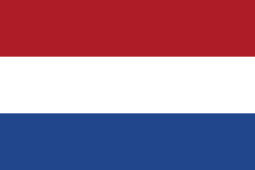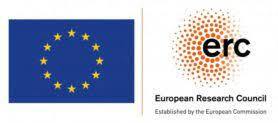Since April 2022, N-EXTLAW and #DemocratizingWork have been co-hosting a webinar series on ‘The Future of Work in the Netherlands – green, just, and democratic, or just the opposite?’. The series consists of three webinars, two of which have already taken place and the third of which is unfortunately cancelled until further notice.
Read more about the series and watch the recordings of the first and second webinars below.
For the Dutch translation, click the flag below:
The advent of more and more digital technologies, and the disruptions brought by the Corona pandemic, have raised many urgent questions about the future of work. They have made visible inequities and forms of injustice that had previously remained under the radar, and they have led many individuals to question the standard model of 9-5 wage labor for their own future. Of course, what we mean by “work” is a social construct – some forms of work receive high remunerations, while others go unpaid, and the rights of workers, while formally protected, differ massively in practice. How we work, and hence how we live, depends on how work is organized in society. But what is a desirable future of work for democratic societies? How should labor markets be regulated and how should companies be managed? This series of webinars looks at dimensions of the future of work in the Netherlands, analyzing the present situation and formulating suggestions for a desirable future.
Organisers: “Democratizing Work” is a global network of scholars, activists, and practitioners interested in a better, more just, and more sustainable future of work. In May 2020, during the first Corona lockdowns, a manifesto on the future of work was published in 36 countries, which has since then garnered more than 6000 signatures. It called for the democratization, decommodification, and decarbonization of work, principles that were further elaborated in a jointly edited book (currently available in English, French and Portuguese). In October 2021, the first “Global Forum on Democratizing Work” took place as a fully digital conference with more than 3000 participants from 85 countries.
Webinar III: ‘Does the dualism remain? Tensions of pursuing societal impact for mainstream and social enterprises’
Date & Time: CANCELLED UNITL FURTHER NOTICE
In a 1970 newspaper article that achieved both fame and notoriety, Milton Friedman claimed: ‘The social responsibility of business is to increase its profits.’ While often characterized as a call for single-minded wealth maximization, Friedman placed the role of corporations in a larger pluralistic, liberal context in which other groups also represent and negotiate their interests and the state watches over this interplay. Already in Friedman’s time, this view represented an ideal that did not fully correspond to reality. The economic situation changed drastically in the years after 1970, as many corporations grew beyond national borders into multinational corporations. Corporate social responsibility and sustainability came into being as ethical imperatives to navigate between Friedman’s responsibility to increase profits and public expectations of ethical behavior. Following these developments, the primacy of shareholder interests is increasingly scrutinized, not only by NGO’s, conscious consumers, and organized labor, but also by business leaders themselves. A shared awareness is emerging, for example in the 2019 statement of the Business Roundtable, that other stakeholders’ interests must receive greater priority if we want to sustain businesses that produce essential goods or services, create decent work, and keep our planet livable. But what are the challenges for larger corporations to actually provide societal impact instead of simply ‘greenwashing’ their brand? And how could social enterprises scale up their fair and sustainable practices, without losing their alternative positioning? In this webinar, we will address these questions with insights from research and practice from the Netherlands. We also ask what social and more mainstream enterprises can learn from each other in pursuing societal impact.
Past Webinars & Recordings:
Webinar I: ‘Labour precarity in the Netherlands’ (4th April 2022)
Over the last decades, the share of non-standard labour contracts (solo self-employment, interim works, platform-mediated work, part-time work…) in the Dutch labour market has grown exponentially, allowing employers to hire and dismiss workers in highly flexible ways, shifting part of the entrepreneurial risks to them to substantially reduce the cost of labour. As a result, a large share of workers in The Netherlands are today employed under highly precarious conditions. They are much less protected than what they used to be under standard employment, in terms of wage guarantee, permanent employment and the social security protection that comes with it. In this webinar, we will examine the forms and prevalence of this widely precarious workforce in the Netherlands, its origins, historical evolution and consequences. We will then discuss possible responses to precarization in view of democratizing work and labour relations.
Moderator: Tim Christiaens (Tilburg)
Speakers: Ronald Dekker (TNO), Valeria Pulignano (KU Leuven), Valeria Piro (University of Milan)
- Dr Tim Christiaens is assistant professor of economic ethics at Tilburg University. He works currently on the impact of the digitalization of work on labour.
- Dr Ronald Dekker is labour economist at TNO in the Netherlands. He mainly works on precarious labour and the economics of innovation.
- Prof Valeria Pulignano is labour sociologist at KU Leuven in Belgium. She currently heads an ERC-funded research project on the theory and measurement of precariousness in labour relations.
- Dr Valeria Piro is post-doctoral researcher at the University of Milan. She mainly studies workers’ political agency under precarious labour conditions.
Watch the Recording of Webinar I:
Webinar II: ‘The role of cooperatives in democratizing and greening the economy’ (10th May 2022)
When it comes to discussions on democratizing work, cooperatives, and worker cooperatives in particular, are a topic that is increasingly gaining traction across countries and economic sectors. While there are clearly diverse types of cooperatives, some common characteristics define the underlying values and ideational frameworks behind the cooperative model, and in particular worker cooperatives. Cooperation, solidarity, horizontal work relations, and democratic self-governance of the workplace and the production process are the core values that can be recognised in many cooperatives. In this webinar, we set out to grapple with the question of what we can learn about democratizing work from current experiences of cooperatives and their struggles, focusing on the situation in the Netherlands. While we will discuss the ways in which worker cooperatives could democratize work by looking into concrete examples from the Dutch context, we will also address current legal and political challenges and obstacles that prevent worker cooperatives from delivering on their own democratizing goals. We will ask what systematic forces prevent worker cooperatives from establishing themselves as a more common form of organised economic activity, and how cooperatives can contribute to “greening” the economy.
Moderator: Vladimir Bogoeski (UvA)
Speakers: Tine De Moor (Rotterdam School of Management), Thijs Spaargaren (Schoongewoon), Marijke Flamman (NCR)
- Tine De Moor is Full Professor in Social Enterprise & Institutions for Collective Action at the Rotterdam School of Management. Her work mainly focuses on the study of the internal functioning of institutions for collective action from the late medieval period to the present day, and on the external factors that lead to the formation of new institutions for collective action.
- Thijs Spaargaren is coordinator and board member of Schoongewoon Netherlands, a collaboration of 10 worker cooperatives in the B2B cleaning sector. The goal of Schoongewoon is to increase the involvement and work satisfaction of employees and thereby also raise quality for clients.
- Marijke Flamman is senior cooperative consultant at the National Cooperative Council (NCR). With her legal and fiscal expertise, she advises cooperative entrepreneurs on matters such as the choice for a cooperative model or the relationship between board, supervisor and members.
- Vladimir Bogoeski is Postdoctoral Researcher in the N-EXTLAW project and member of the Amsterdam Centre for Transformative Private Law (University of Amsterdam Law School). His current research is situated at the intersection of private law, labour law and political economy of labour.
Watch the Recording of Webinar II:
Organising team:
Tim Christiaens (Tilburg University)
Patrizia Zanoni (Utrecht University)
Damion Bunders (Erasmus University Rotterdam)
Jan Winde (Federation of Dutch Trade Unions, FNV)
Jill Toh (University of Amsterdam)
Max Visser (Radboud University)
Björn Bierhaalder (Make Change Happen)
Petar Marceta (University of Amsterdam)
Lisa Herzog (University of Groningen)
Vladimir Bogoeski (University of Amsterdam)




